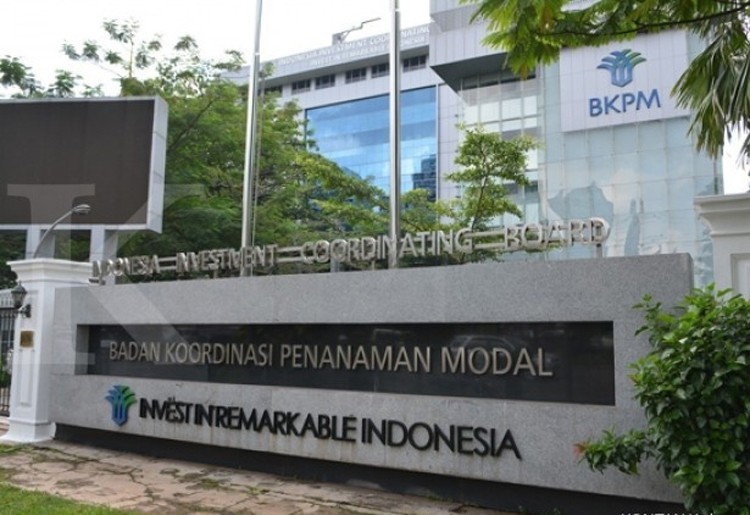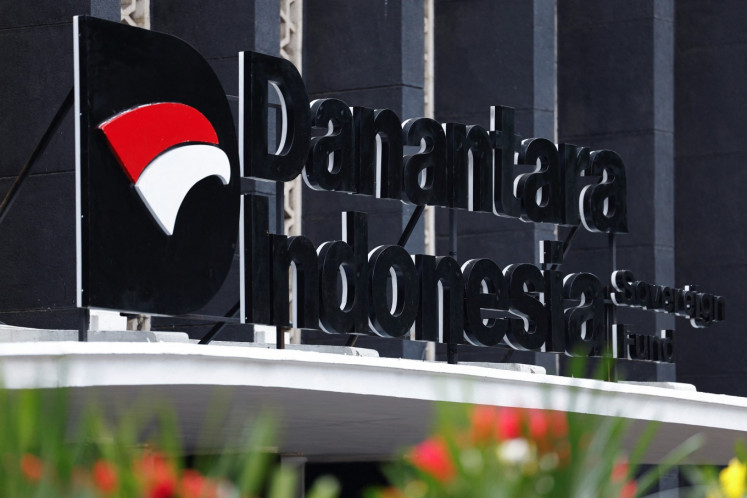Popular Reads
Top Results
Can't find what you're looking for?
View all search resultsPopular Reads
Top Results
Can't find what you're looking for?
View all search resultsJobs law opens industries to investors
The law states that all business sectors are open to foreign direct investment (FDI) as well as domestic direct investment (DDI), with the exception of six prohibited sectors and businesses that can be carried out by the government.
Change text size
Gift Premium Articles
to Anyone
I
ndonesia is opening up almost all its business sectors to foreign investors in the recently passed Job Creation Law to attract more investment into the country, which is struggling to recover from a COVID-19-induced economic downturn.
The law states that all business sectors are open to foreign direct investment (FDI) as well as domestic direct investment (DDI), with the exception of six prohibited sectors and businesses that can be carried out by the government.
The six prohibited sectors narcotics, gambling, chemical weapons, ozone-depleting substances, coral extraction and fishing activities for endangered species based on the Convention on International Trade in Endangered Species of Wild Fauna and Flora (CITES). It states that further rules will be detailed in a government regulation (PP).
The current negative investment list (DNI), which is a derivative regulation from the 2007 Investment Law, regulates business sectors that are open, prohibited or open with certain conditions to foreign investment.
“The point is to create investment opportunities for added value [industries] in the country,” Investment Coordinating Board (BKPM) deputy head Yuliot told The Jakarta Post on Nov. 2.
The government previously floated the idea of scrapping the DNI and replacing it with a “positive investment list” that outlines available sectors as it liberalizes investment. This is part of the government’s concerted efforts to attract more investment into the country.
To that end, the omnibus law also promises less red tape, fewer land overlaps, looser labor laws and looser environmental safeguards.
Businesspeople have complained about the country’s red tape and rigid labor regulations, with the country’s ease of doing business ranking stagnating at 73rd on the World Bank’s Doing Business index published in October last year.
BKPM data shows that investment inflows reached Rp 209 trillion (US$14.2 billion) in the July-September period, rising 1.6 percent from the same period last year and rebounding from the previous quarter, as businesses reopened after a temporary COVID-19 closure.
The omnibus law also deletes a provision in the 2007 law that obliges the government to determine business sectors that are set aside for cooperatives and micro, small and medium enterprises (MSMEs) and that are opened for big companies with the condition for them to forge a partnership with the small businesses.
It instead stipulates that the government and regional administrations give relaxations, empowerment and protection for cooperatives and MSMEs in accordance with norms, standards, procedures and criteria determined by the government. The protection and empowerment efforts will be in the form of partnership programs, human resources training, competitiveness improvement and greater financing access, among other things.
“The theory was to open everything first, then limit them later on,” Indonesian Chamber of Commerce and Industry (Kadin) industry deputy Johnny Darmawan, who was part of the law’s drafting task force, told the Post on Nov. 3.
He added that the government was also working on a new list, tentatively called the Investment Priority List, that names key industries eligible for incentives. The mining industry will likely make the list as the government pursues massive downstreaming plans.
Yuliot added that lawmakers would waive a requirement for foreigners to secure a ministerial recommendation letter to invest in certain high-risk industries. The procedure instead would be carried out through the BKPM’s online single submission (OSS) system.
Kadin transportation chairwoman Carmelita Hartoto said relaxing the DNI alone was not enough to attract foreign investment to the transportation industry.
“The ease of investing, the simplicity of getting permits and the certainty of investments are also determining factors,” she told the Post via text message.
Fitch Ratings does not expect the Job Creation Law to boost Indonesia’s economy in the short-term but rather in the long-term, particularly by attracting more FDI and raising manufacturing exports over the years.
“The effects of the reform package will take time to be felt. They are also unlikely on their own to drive changes in the near term for Indonesia’s ‘BBB’ rating,” wrote the agency on Oct. 14, referring to its fourth-highest credit rank.
Fitch cautioned that the law’s potential would be limited by government red tape, which still remained “complex and burdensome” compared to some Southeast Asian peers, and by the government’s ability to implement derivative regulations, including those related to laborers.
The law already aims to cut workers’ severance payments by up to 40 percent – a move being heavily protested by trade unions – yet such payment levels “will remain high enough to be a concern for some foreign investors”.










